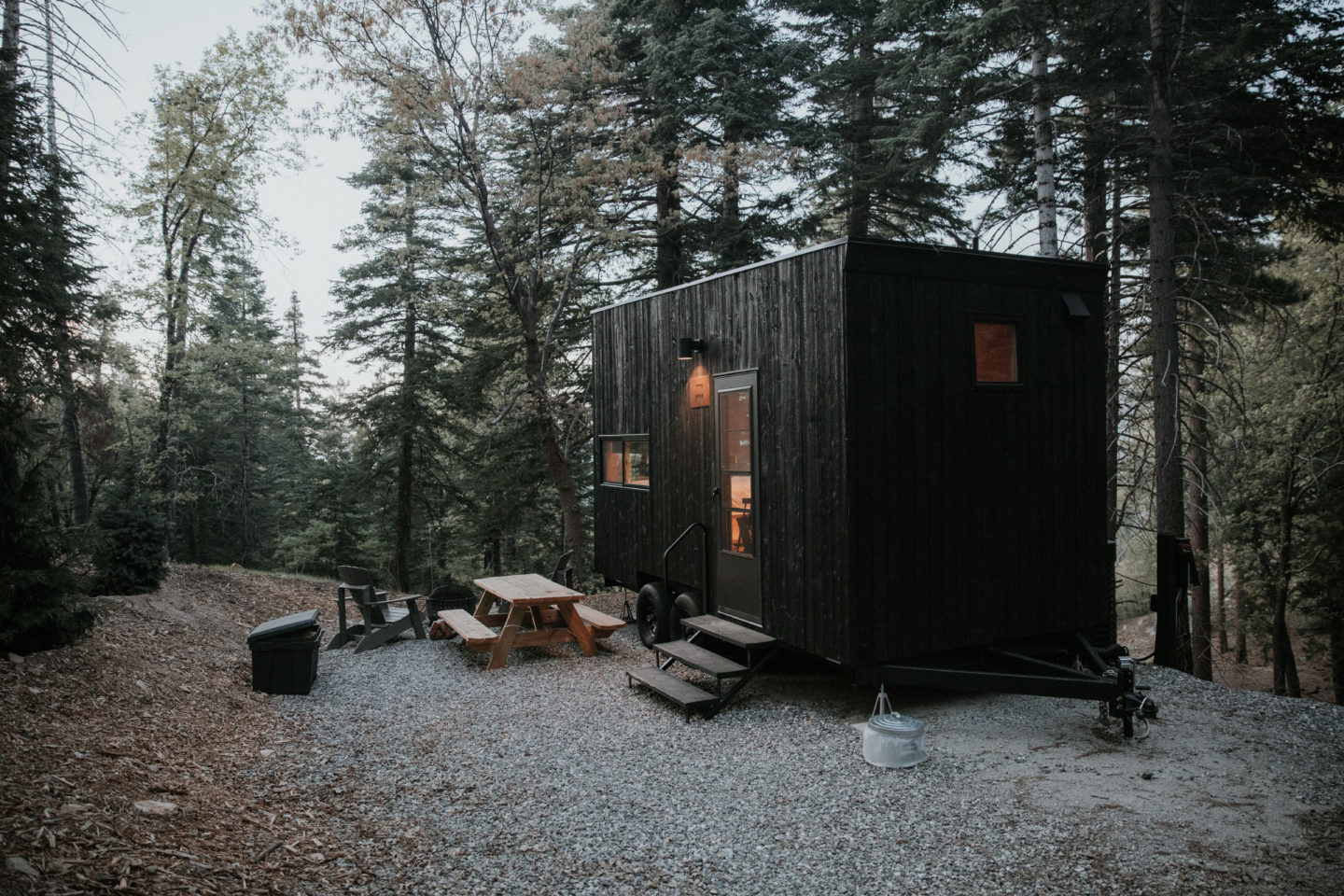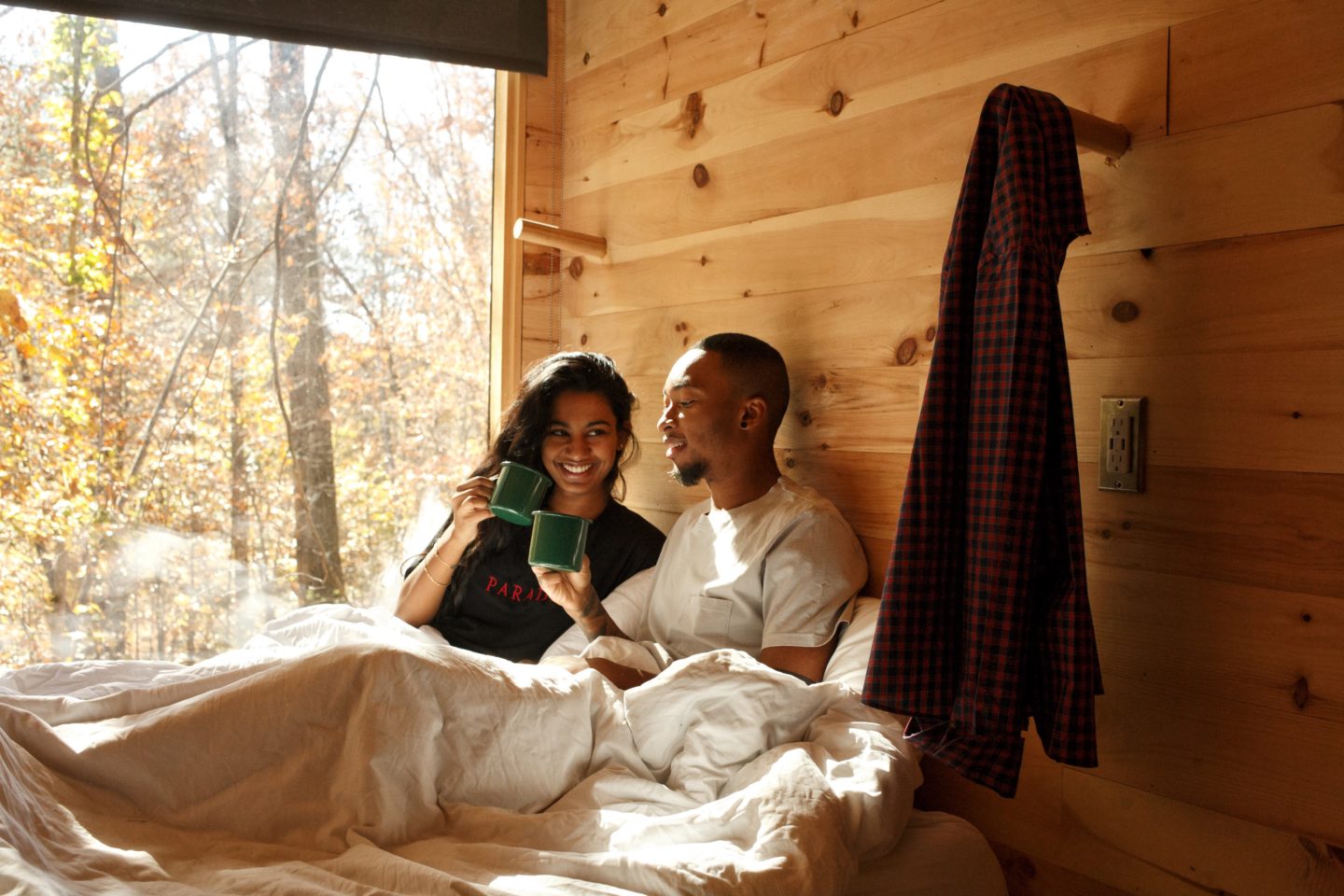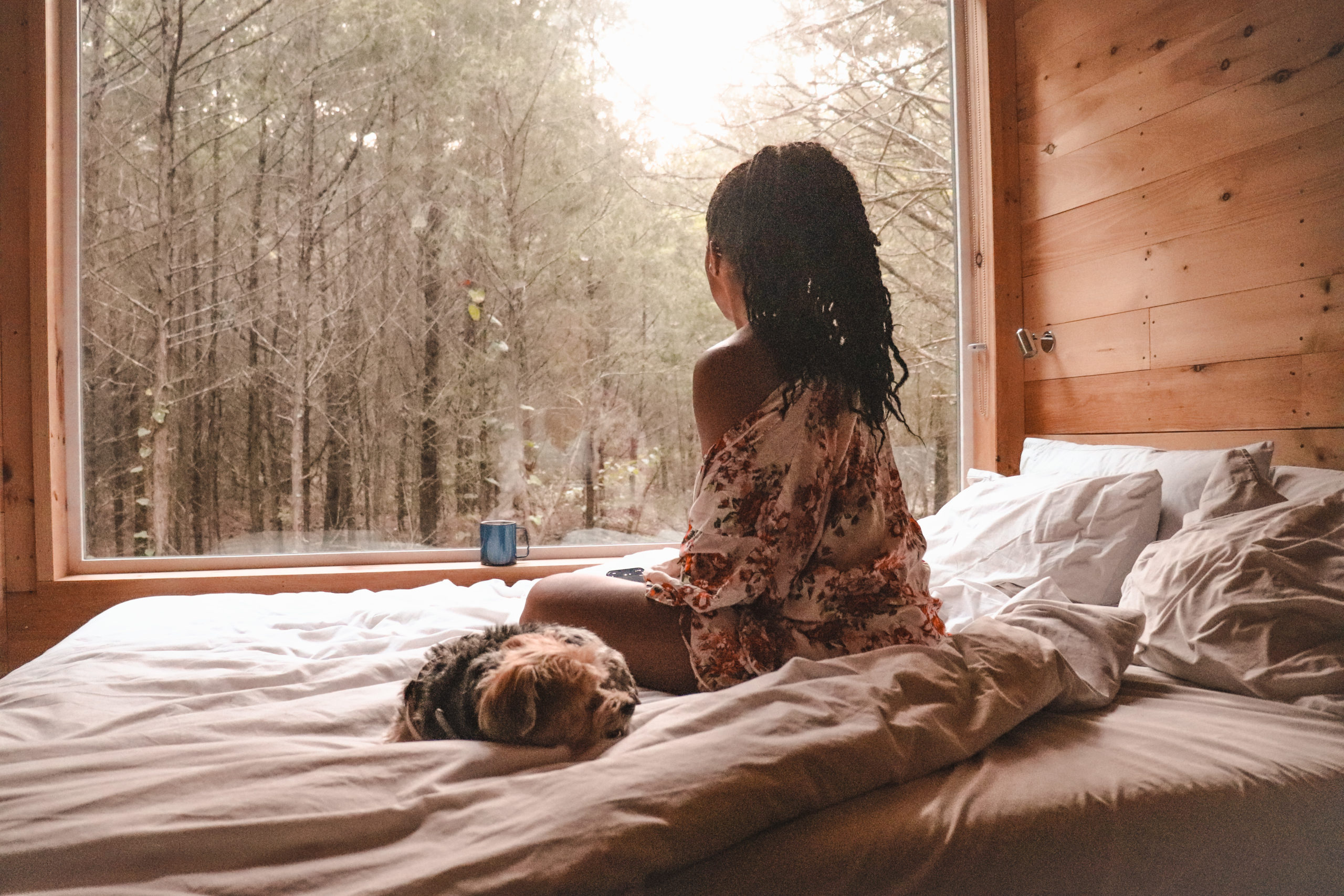Last summer, the police killings of George Floyd and Breonna Taylor sparked a national reckoning with the persistent violence of racism in America. Protesters took to the streets in cities and towns across the country and around the world to demand racial justice, and Getaway stood in solidarity with those protests and the Movement for Black Lives.

In order to back up our values with actions, in June 2020 Getaway created a program to uplift and support our Black community the way we know best: by providing rest and access to nature. In partnership with Rachel Cargle, The Nellie Mae Education Foundation, and Miir, we launched A Year of Rest and gifted 365 Getaways to Black activists and community organizers, in keeping with our core values that rest is a right, and nature is for everyone. A year later, I’m thrilled to say that Getaway has provided 365 extraordinary individuals with nights of rest at Getaway’s cabins: doctors fighting injustice in the healthcare system; teachers connecting their students with diverse authors; gun violence prevention activists; interdisciplinary artists uplifting their communities’ stories; and so many more. We renewed A Year of Rest for a second year, with plans to keep it going long-term.
As we move into A Year of Rest 2.0, I’m painfully aware that the struggle for justice is far from over. Structural racism still pervades American social, cultural, and economic life. Simply existing as a Black person in this country can take a significant toll on mental and physical wellbeing. In his recent Washington Post op-ed “Being Black in America Is Exhausting,” Pulitzer Prize-winning journalist Jonathan Capehart describes the “mental calculus” he takes to try and keep himself safe: never running in public, never pulling out his keys in public (someone might mistake them for a knife), never walking directly behind someone. He writes, “No matter our gender, age or socioeconomic status, we are viewed as threats. As a result, we live under siege.”
For many Black Americans, these feelings of anxiety and vulnerability are intensified in outdoor spaces, which remain overwhelmingly white sixty years after the US Supreme Court ended legal segregation. (Yes, state and national parks–and hiking trails, rivers, and lakes–were segregated before that ruling.)

In spite of all this, Black activists and organizers continue working and fighting, in ways big and small, to create opportunities for the next generation while making our communities more safe and our society more just. Over the past Year of Rest, we’ve had the privilege of learning about thousands of brilliant, courageous, creative change-makers through your nominations.
As we launch our second Year of Rest, I find it helpful to remember the Black poet and activist Audre Lorde, who first described self-care as a political act. Or as Rachel Cargle would say: “Black people staying alive and well is the resistance.”

